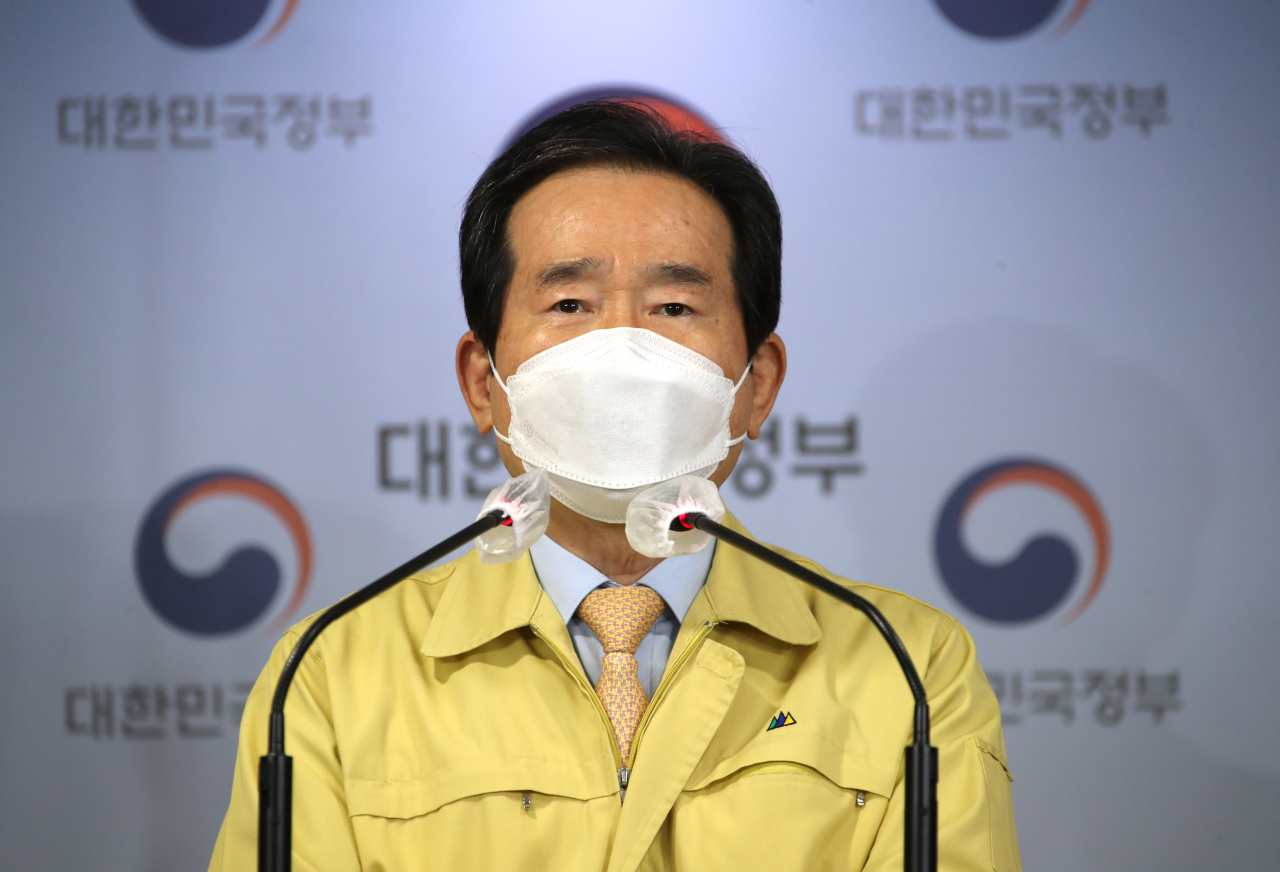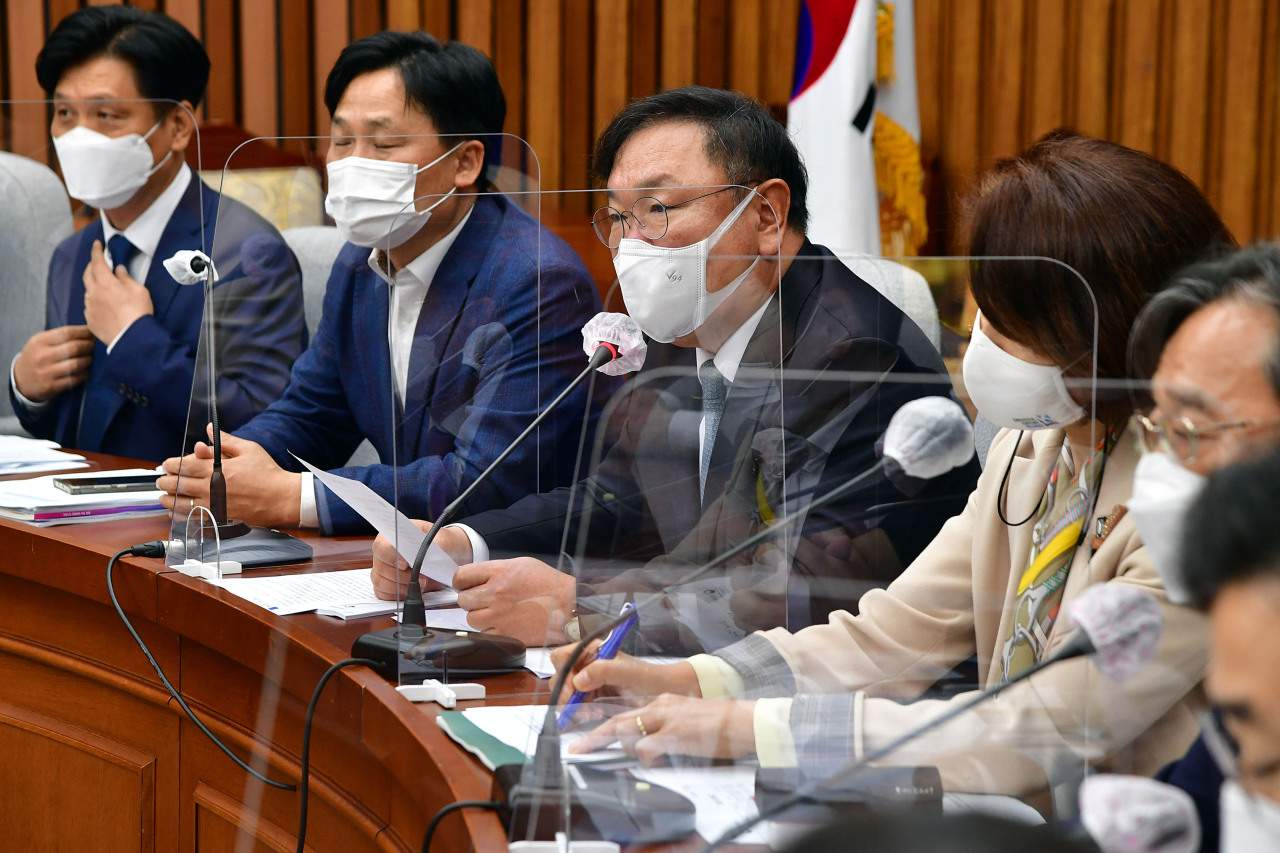Cory Booker explains why a law is needed to protect Robert Mueller.
Two weeks ago, Donald Trump started to make those noises he sometimes makes when he feels like he wants to fire special counsel Robert Mueller. Republican Sens. Lindsey Graham, John McCain, Jeff Flake, and Chuck Grassley issued warnings that Mueller should not be removed. Graham suggested that the dismissal of Mueller would likely be an impeachable offense and would also trigger a constitutional crisis. Even Sen. Mitch McConnell, after several days of sober pondering, said that “Bob Mueller should be allowed to finish his job.”
So far, these Republicans have been all talk and no action. There are fixes they could implement. Four bills—two in the Senate and two in the House of Representatives—have been introduced to curtail the president’s power to unilaterally fire the special counsel. The two Senate efforts to protect Mueller from Trump’s capricious temper were introduced months ago. One bill, sponsored by Graham and New Jersey Democrat Cory Booker with support from Democrats Sheldon Whitehouse and Richard Blumenthal, wouldn’t allow a termination to proceed without the approval of a three-judge panel. Another, brought forward by North Carolina Republican Thom Tillis and Delaware Democrat Chris Coons, would allow such a panel to review the decision after the firing had already gone through.
As Politico notes, the Tillis–Coons bill and the Graham-Booker bill “must be merged … before the Senate Judiciary Committee can consider it. The Judiciary panel’s chairman, Sen. Chuck Grassley (R–Iowa), has yet to publicly support either version pending ongoing talks on combining the plans.” Grassley has also suggested that these efforts to constrain the president might be unconstitutional.
Even though this bipartisan legislation exists, few on the GOP side seem to be pushing for it. “I don’t think there’s any need for that,” Graham noted. “I’ve got zero concerns that the president or his team is going to fire Mueller.” Dianne Feinstein, the leading Democrat on the Senate Judiciary Committee, also isn’t certain such legislation is necessary: “I don’t think we need it. … I was listening to various comments even from Republicans like Trey Gowdy. And people felt very strongly it would be a major breach for the president to fire Mr. Mueller. I agree with that.”
Advertisement Advertisement Advertisement AdvertisementIn the midst of the thundering GOP insistence that there is no way Donald Trump would ever do anything nutty, Tillis and Coons issued a joint statement Tuesday pushing the president to let the investigation go forward. “We urge President Trump to allow the Special Counsel to complete his work without impediment, which is in the best interest of the American people, the President, and our nation,” they said. Also on Tuesday, Blumenthal and eight other Democrats on the Senate Judiciary Committee sent a letter to five Justice Department officials asking for their commitment to protect Mueller in the event the president moves against him while Congress is out of town for a two-week break. On MSNBC, Blumenthal suggested the letter had been prompted by “swirling,” “unconfirmed” reports that the president may be considering firing Mueller.
AdvertisementI reached out via email to Booker to try to figure out how these two proposed bills might be consolidated and why this inaction has persisted. Our conversation, which has been condensed and edited for clarity, is below.
Dahlia Lithwick: The main difference between the legislation you’ve co-sponsored with Sen. Graham—the Special Counsel Independence Protection Act—and the Coons–Tillis proposal seems to be that your bill would require the attorney general to file an action in the United States District Court for the District of Columbia before removing the special counsel, whereas the Coons–Tillis plan allows the special counsel to challenge his dismissal in court after the fact. Are there any other major differences?
Cory Booker: There are some other nuanced differences, but yes, requiring judicial review to ensure a firing is made for cause versus providing a cause of action for the special counsel to challenge his or her termination after the fact is the primary difference.
Advertisement AdvertisementWhat’s your answer to the question about whether these laws are unconstitutional? Some conservative scholars are advancing this claim, citing Morrison v. Olson(a 1988 Supreme Court case about the constitutionality of the independent counsel law)and theories about the unitary executive.
“It just doesn’t make sense to me why we should not act now.” — Cory BookerIn the fall, the Senate Judiciary Committee held a hearing on the constitutionality of the two special counsel bills, which included testimony by legal scholars and experts on the constitutionality of our bill. I’m confident our bill is constitutional under Morrison v. Olson. That case involved the challenge of the independent counsel provision in the Ethics in Government Act. The Supreme Court held that Congress may require a three-judge panel to appoint a special counsel because he or she is an inferior officer. Under that construct, we similarly believe Congress may involve a three-judge panel in the termination of a special counsel. The bottom line is Morrison v. Olson is still good law and we drafted our bill with that in mind. There are plenty of constitutional scholars who agree that our bill is on firm constitutional footing.
Advertisement Advertisement AdvertisementThe primary response to your legislation from your GOP counterparts, including the co-sponsors, seems to fall into two general classes: (1) It’s not needed because Trump won’t dare fire Mueller; and (2) it’s not needed because if Trump does fire Mueller they will bring down the wrath of the Senate upon him. I understand that they are pinched between public opinion and their obligation to protect the special counsel, but I find each of these rationales about equally implausible. You?
According to press reports, President Trump already tried once to fire special counsel Mueller. We just cannot trust the president to do the right thing here, especially considering how he has ratcheted up his criticism of the special counsel’s investigation. And to address your second point, I have yet to see the Republican-controlled Congress stand up to President Trump. I’m talking to colleagues every chance I have, trying to convince them that too much is at stake to allow for unknowns to remain when options are available to cut this potential crisis off at the pass. It just doesn’t make sense to me why we should not act now.
What’s a constitutional crisis, in your view? Are we in one now? Will we be in one if Mueller is fired? Will we be in one if he is fired and the Congress fails to react?
If special counsel Mueller is fired, we will be in a constitutional crisis. Our system of governance will not be functioning as it should and the president will feel as if he can act with impunity. That is a dangerous situation for our country and we must avoid it at all costs.
Tweet Share Share Comment(责任编辑:新闻中心)
 17 Spectacular Outdoor Staircases
17 Spectacular Outdoor Staircases Megan Rapinoe calls out Trump: 'Your message is excluding people'
Megan Rapinoe calls out Trump: 'Your message is excluding people' Instagram policy change means it can delete rule
Instagram policy change means it can delete rule World's largest hydrogen "green steel" plant to open in Sweden by 2024
World's largest hydrogen "green steel" plant to open in Sweden by 2024 高燃!哨响表停赛不止,2024广东“村BA”开赛在即,一分钟带你重温高光瞬间。
高燃!哨响表停赛不止,2024广东“村BA”开赛在即,一分钟带你重温高光瞬间。
- First officially approved Gen IV nuclear reactor in the US breaks ground
- 一“碰瓷”团伙 在芦山“演”砸了
- How to cope when a friendship ends
- 渔公子|“蟹”逅江苏好润红
- Why Kamala Harris triggers Donald Trump so intensely.
- Weak electrolyte bonds keep lithium metal battery running in the cold
- Trump drawn as a comic book villain is too damn uncanny
- Federal appeals court rules Trump can't block people on Twitter
-
22 Unusual Things You Can Find in the Desert
 In the desert, it can seem like very little exists aside from dunes and a few creatures that are ada
...[详细]
In the desert, it can seem like very little exists aside from dunes and a few creatures that are ada
...[详细]
-
WiFi extenders: How to pick (and set up) the right one
 Trouble streaming Netflix? The problem could be WiFi dead zones in your home. Maybe your house is a
...[详细]
Trouble streaming Netflix? The problem could be WiFi dead zones in your home. Maybe your house is a
...[详细]
-
Prime minister asks Koreans to stay home
 Prime Minister Chung Sye-kyun delivers a live address to the nation on Friday, asking the public to
...[详细]
Prime Minister Chung Sye-kyun delivers a live address to the nation on Friday, asking the public to
...[详细]
-
Google Pixel 4 XL renders: bump on the back, forehead on the front
 Google has never been particularly interested in making its Pixel phones stand out from the crowd. W
...[详细]
Google has never been particularly interested in making its Pixel phones stand out from the crowd. W
...[详细]
-
How 3D Game Rendering Works: Texturing
 In this third part of our deeper look at 3D game rendering, we'll be focusing what can happen to the
...[详细]
In this third part of our deeper look at 3D game rendering, we'll be focusing what can happen to the
...[详细]
-
The enigma that is Faheem Ashraf
 KARACHI:Many would remember the 2017 Champions Trophy because of Pakistan’s stupendous victory
...[详细]
KARACHI:Many would remember the 2017 Champions Trophy because of Pakistan’s stupendous victory
...[详细]
-
Sainz and Schumacher wait their turn
 LONDON:Ferrari began five days of testing at their Fiorano track on Monday with new signing Carlos S
...[详细]
LONDON:Ferrari began five days of testing at their Fiorano track on Monday with new signing Carlos S
...[详细]
-
N. Korea campaigns against anti
 By Yi Whan-wooNorth Korea is cracking down on "anti-socialist culture," on the border with China, fo
...[详细]
By Yi Whan-wooNorth Korea is cracking down on "anti-socialist culture," on the border with China, fo
...[详细]
-
 碘是人体必需的微量元素。人体缺碘会造成不同程度的损害,导致发生碘缺乏病,特别是对孕妇、婴幼儿的危害更为突出。那么,我们该如何科学补碘呢?近日,记者采访了雨城区疾控中心相关专家。问:什么是碘缺乏病?答:
...[详细]
碘是人体必需的微量元素。人体缺碘会造成不同程度的损害,导致发生碘缺乏病,特别是对孕妇、婴幼儿的危害更为突出。那么,我们该如何科学补碘呢?近日,记者采访了雨城区疾控中心相关专家。问:什么是碘缺乏病?答:
...[详细]
-
This woman assumed her trainer was flirting, he just thought she looked like Buzz Lightyear
 Getting a flirty text from someone you like is the ultimate confidence boost. But sexy messages can
...[详细]
Getting a flirty text from someone you like is the ultimate confidence boost. But sexy messages can
...[详细]
- Pragmocracy Now
- Up to 30,000 a day allowed into Australian Open
- Donald Trump, Jr. tells Twitter followers to vote on the wrong day
- Netflix's 'Point Blank' fails Frank Grillo and Anthony Mackie: Review
- 3D Game Rendering 101
- Flamethrower attachments for drones now a reality
- Weak electrolyte bonds keep lithium metal battery running in the cold


